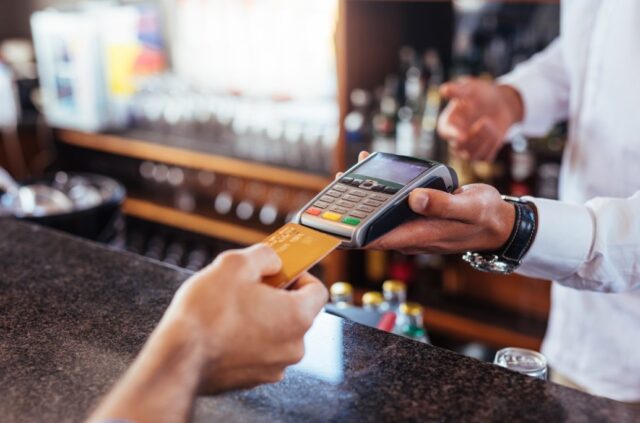
In the past, if a customer wanted to pay for your goods or services, the only payment options were cash or a check. Today, however, there are many more payment options available. In addition, processing payments in today’s world is more involved, and a wide variety of solutions are available to you for carrying out this task.
In addition, if you operate an eCommerce firm or department, you will want assistance from a third party. POS payment processing involves accepting and processing various forms of digital payment via hardware and software.
Let’s discuss the two terms, a point-of-sale (POS) system and a payment processor, the scenarios in which you could choose one solution over the other, and the one that will serve you best in the long run.
What Payment Processor Does?
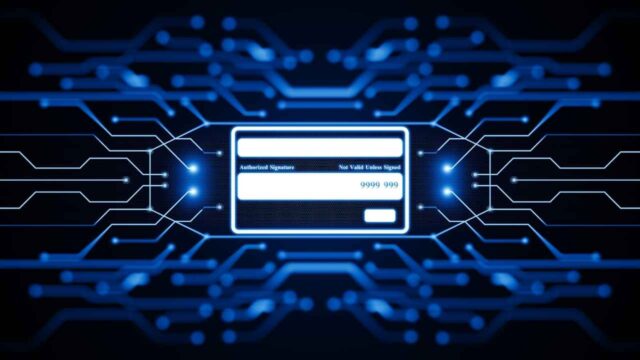
The phrase “payment processor” is now often used to refer to a variety of various components that are involved in the payment process. At its heart, it is a third-party firm that handles the processing of consumer debit and credit card payments. This company is selected by the merchant or the small business to execute the transaction.
Consumers pay with credit cards at your business and enter their cards into your credit card terminal. It only takes a few seconds for your payment processor to mediate the interaction between all the different financial institutions participating in the transaction. Depending on the payment processor you employ, and whether you are processing the transaction in-person or online, the bank associated with the consumer, the credit card network, your merchant account, and more parties may be involved.
By adopting point-to-point encryption or tokenization, all communications need to be encrypted to eliminate the risk of fraud committed by any parties involved.
When dealing with an online transaction, payment processors are required to perform additional procedures, such as engaging with the payment gateway provided by the firm. If, on the other hand, all of your transactions take place inside your physical location, you may get away with a simple payment processor and a credit card terminal that scans cards using an EMV chip reader and complies with PCI DSS.
What Is A “Point Of Sale”?
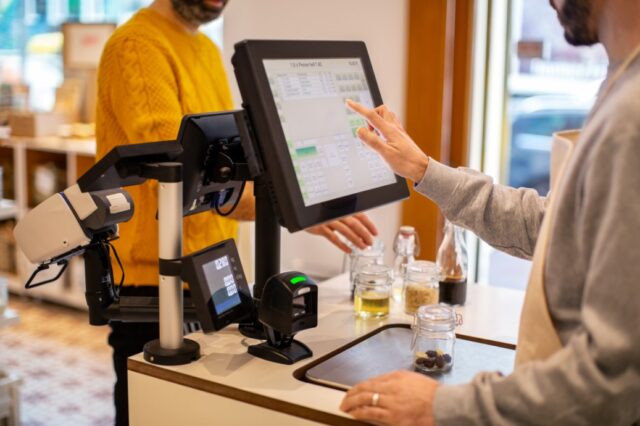
Another phrase that has evolved to imply a variety of things to many individuals is “point of sale.” A point-of-sale system, often known as a POS and sometimes abbreviated to “POS,” is, at its most basic level, a combination of hardware and software used by an organization to handle transactions.
Either your cash register or the page on your website that accepts payments might function as your point of sale. The traditional cash register has given way to the more modern point-of-sale (POS) technology. Many come packaged with software that, among other capabilities, may interface with the software you use to manage your inventory and customer loyalty program.
A payment processor is different from a point-of-sale system (POS). However, payment processing is sometimes included in the offers of POS systems. One of the most fundamental aspects of a point-of-sale (POS) system is its capacity to process in-person and online financial transactions.
If you run a traditional storefront operation, you can accept cash payments, which means you won’t be able to take advantage of lucrative credit card transactions, which are becoming more common daily. You’ll need another tool to provide clients with a comprehensive selection of payment methods while also allowing your company to get insight into customer loyalty and other metrics simultaneously.
Which Of These Options Is Preferable For Your Small Business?
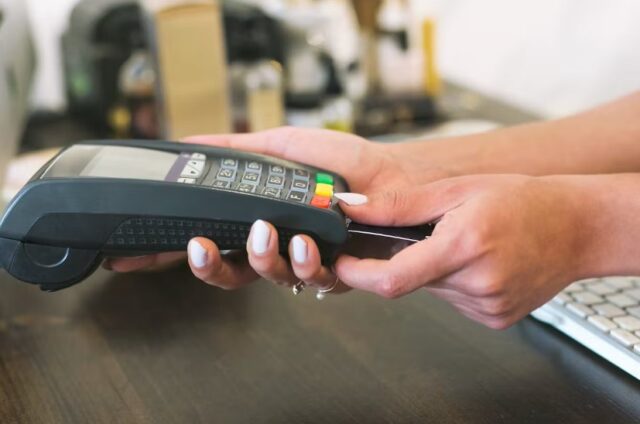
The requirements of your small company will determine whether you would be better served by purchasing a freestanding credit card reader or investing in a more complicated and robust point-of-sale system to handle the processing of your payments.
The benefits and drawbacks of each option are easy to understand. You will spend less money with a straightforward payment processor that handles just credit card transactions; consequently, you will need more capabilities. POS systems are loaded to the gills with fantastic features, but you will pay more for these capabilities, and it will only sometimes be evident why a more costly POS system is a better product than its rivals.
A straightforward payment processing service that merely processes card transactions is an excellent choice if you run a traditional storefront enterprise, have no intention of entering the realm of electronic commerce, and are uninterested in additional features such as employee management or customer relationship management.
POS Innovation
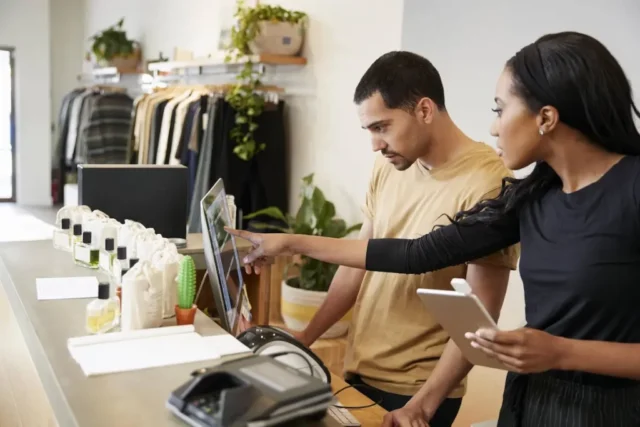
The majority of today’s point-of-sale (POS) systems can be programmed or expanded using software developed by a third party. Moreover, these methods are adaptable to accommodate a wide variety of prerequisites. For instance, several shops use point-of-sale (POS) systems to handle membership programs. These programs reward repeat customers with points and provide discounts on subsequent purchases.
Cloud-based point-of-sale (POS) systems are becoming more popular, especially among major online retailers, to monitor and process many sales. Many companies can establish a point-of-sale (POS) system with much lower initial expenses if they use cloud-based services.
In the hotel business, in particular, point-of-sale (POS) systems allow customers to engage with the system independently. Transactions may be processed at customers’ locations using these technologies, often called location-based technology.
Customers at many restaurants, for instance, have access to terminals at their tables that allow them to see the restaurant’s menu and make orders. Likewise, customers of hotels utilize terminals that are functionally equivalent to one another to make orders for room service and pay their hotel bills.
Closing Remarks
It is difficult to overlook the benefits of investing in a high-quality point-of-sale system if you are a small company owner and want to remain competitive in the years to come. If you do this, you will be able to scale up without any interruptions or the need to worry about finding new service providers or purchasing extra hardware. Get the additional features you want by connecting with your POS supplier. A marketing approach that combines digital and traditional methods offers a variety of advantages.







